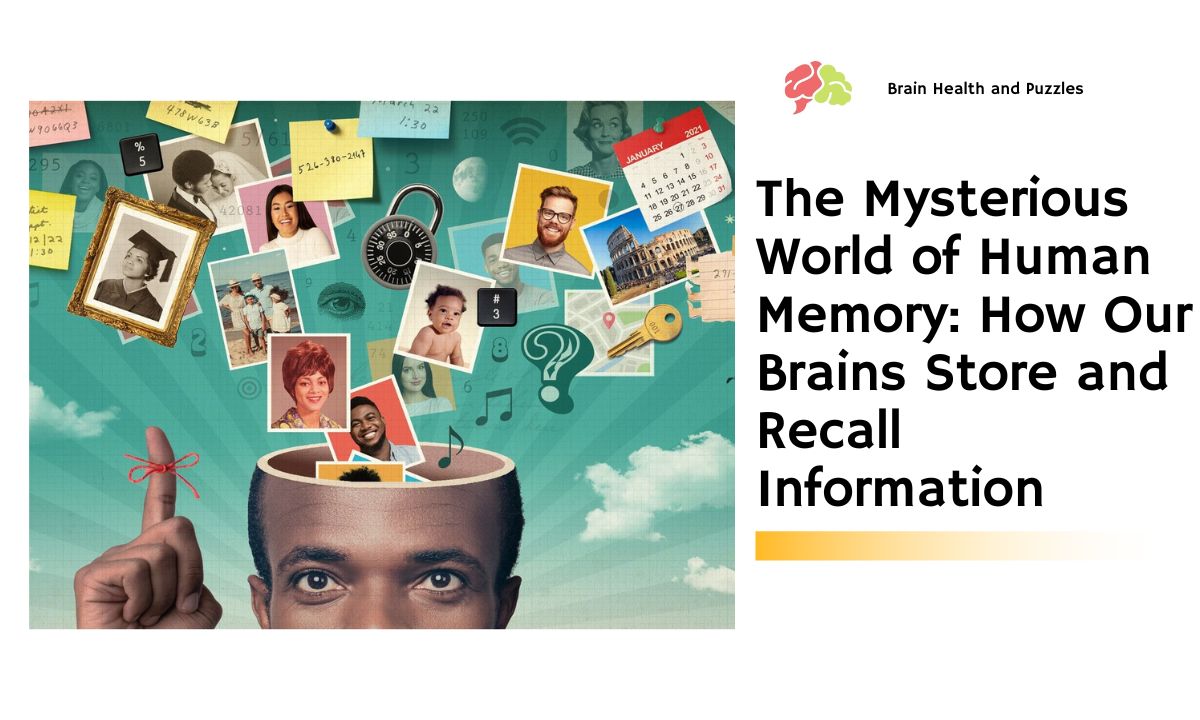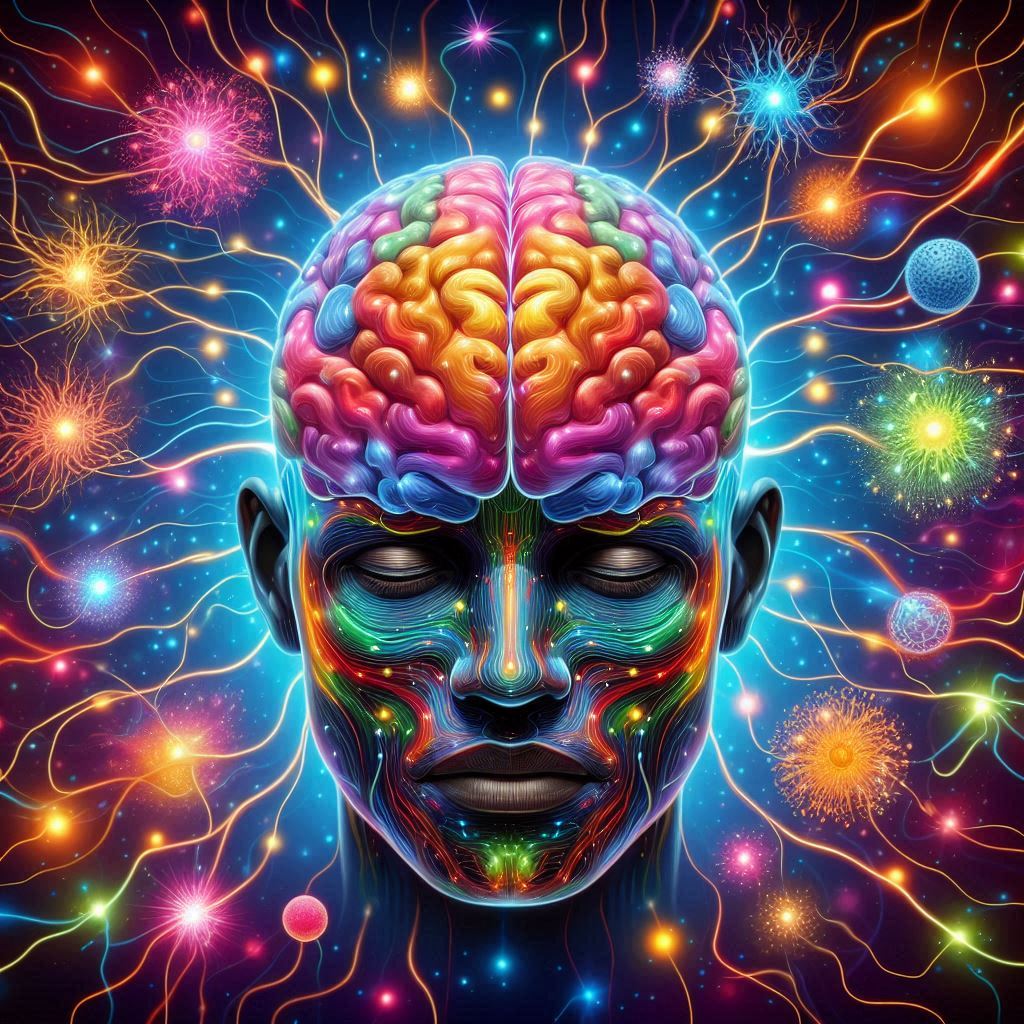The Mysterious World of Human Memory: How Our Brains Store and Recall Information

Memory is a remarkable cognitive process that allows us to acquire, store, and retrieve information. It is the foundation of our personal experiences, knowledge, and identity. But how does our brain accomplish this complex task? In this article, we will delve into the mysterious world of human memory, exploring the stages of memory formation, the underlying mechanisms, and factors that can enhance or impair our ability to remember.
-
Encoding: From Perception to Storage
The process of memory begins with encoding, where our brain transforms sensory information into a form that can be stored and later retrieved. This involves the conversion of external stimuli, such as sights, sounds, and experiences, into neural codes that can be processed and stored in the brain. Different types of memories, such as sensory, short-term, and long-term memories, are formed through various encoding mechanisms and neural pathways.
-
Storage: Building the Memory Bank
Once information is encoded, it moves into the storage phase. The brain has different systems and regions dedicated to the storage of different types of memories. Short-term memories are transient and can hold a limited amount of information for a brief period. On the other hand, long-term memories have a virtually limitless capacity and can be stored for extended periods, potentially for a lifetime. The hippocampus, a region in the brain, plays a crucial role in the consolidation of memories from short-term to long-term storage.
-
Retrieval: Unveiling the Past
Retrieval is the process of accessing stored memories and bringing them back into conscious awareness. It involves the reactivation of neural patterns and connections that were formed during encoding and storage. Retrieval can occur spontaneously or be triggered by external cues, associations, or intentional efforts. While some memories are easily retrieved, others may require more effort or may be subject to forgetting or memory distortions.
-
Types of Memory
Human memory is a multifaceted system that encompasses different types of memory, each serving specific functions.
a. Sensory Memory: This type of memory holds sensory information for a very brief duration, allowing us to perceive the world as a continuous experience.
b. Short-term Memory: Also known as working memory, it temporarily holds and manipulates information for immediate tasks. It has a limited capacity and requires active rehearsal to prevent decay.
c. Long-term Memory: This is the vast reservoir of information stored over a longer period. It can be further divided into explicit (declarative) and implicit (procedural) memory. Explicit memory involves the conscious recall of facts and events, while implicit memory is unconscious and involves skills, habits, and conditioned responses.
-
Factors Affecting Memory
Several factors can influence our ability to encode, store, and retrieve information effectively. These include:
a. Attention and Focus: Paying attention to information during encoding enhances memory formation. Distractions or divided attention can impair memory.
b. Emotion and Significance: Emotional experiences tend to be remembered more vividly. Information that is personally relevant, meaningful, or significant is also more likely to be retained.
c. Sleep: Adequate sleep is crucial for memory consolidation. During sleep, the brain strengthens and stabilizes newly formed memories.
d. Mnemonic Techniques: Using mnemonic devices, such as acronyms, visualization, or chunking, can aid in memory encoding and retrieval.
e. Age and Health: Aging, certain medical conditions, and neurological disorders can affect memory function. Good overall health, including a balanced diet and regular exercise, promotes optimal memory performance.
Conclusion
The world of human memory is a fascinating and intricate landscape within our brains. From the encoding of sensory information to the storage and retrieval of memories, our brain undergoes complex processes to create our unique and personal recollections. While we have made significant progress in understanding the mechanisms of memory, there is still much to uncover.
Memory is not a fixed and static entity; it can be influenced by various factors and can be both reliable and fallible. Our memories can be shaped by our emotions, attention, and the significance we attach to experiences. They can also be susceptible to forgetting, distortion, or even false memories. The brain is a dynamic organ, and memory is subject to ongoing processes of modification and reconstruction.
Understanding the mysteries of human memory has practical implications in various aspects of our lives. In education, knowledge of memory processes can inform effective learning strategies and enhance information retention. In legal contexts, understanding the fallibility of memory can help ensure fair and accurate testimony. In everyday life, optimizing memory function can improve productivity, problem-solving abilities, and overall cognitive performance.
As researchers continue to explore the intricacies of memory, advancements in neuroscience and cognitive psychology provide us with valuable insights. Techniques such as functional magnetic resonance imaging (fMRI) and electroencephalography (EEG) allow scientists to observe and analyze brain activity during memory tasks, unraveling the underlying neural mechanisms.
In conclusion, the world of human memory is a captivating realm that shapes our experiences, knowledge, and sense of self. From the encoding of sensory information to the storage and retrieval of memories, our brain orchestrates intricate processes to preserve and recall information. By understanding the stages of memory formation, the factors that affect memory, and the limits of its reliability, we can navigate this mysterious world with greater awareness and harness the power of memory to enrich our lives.



